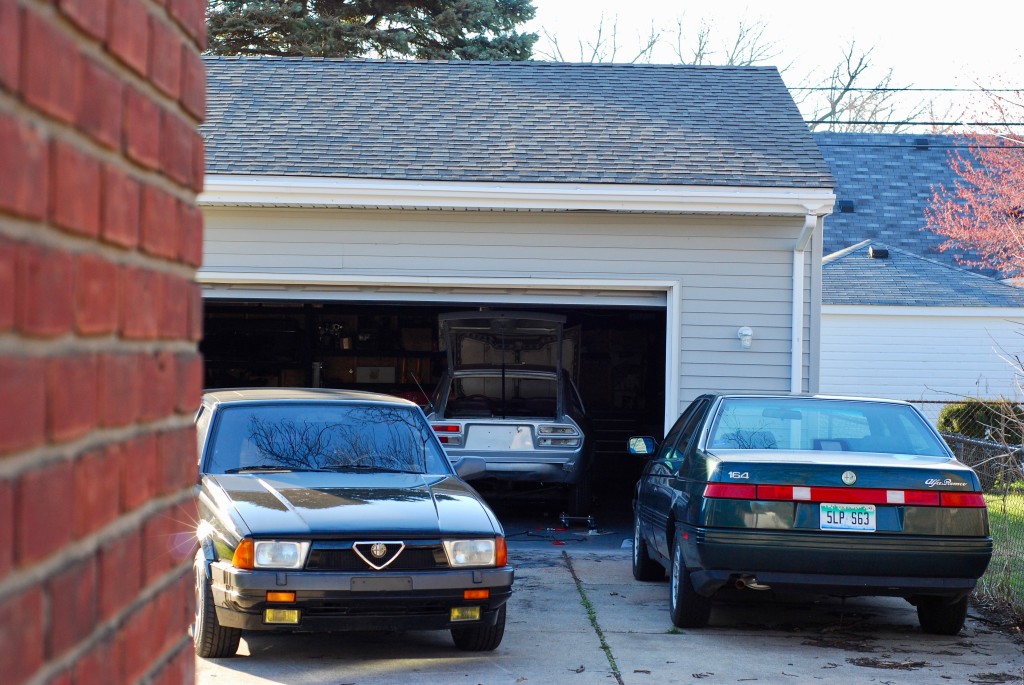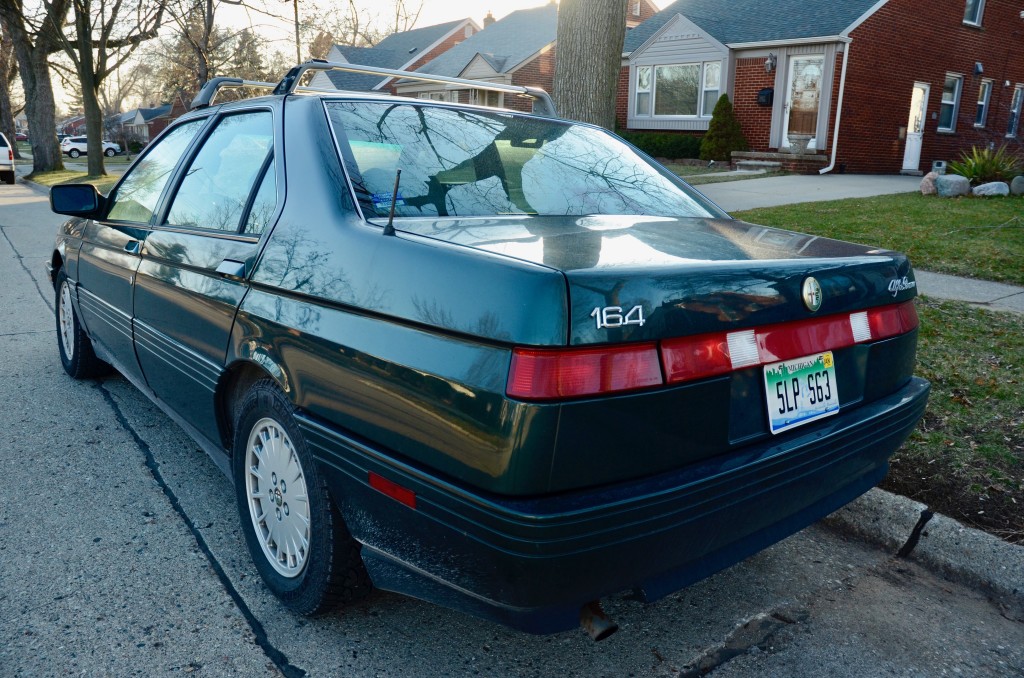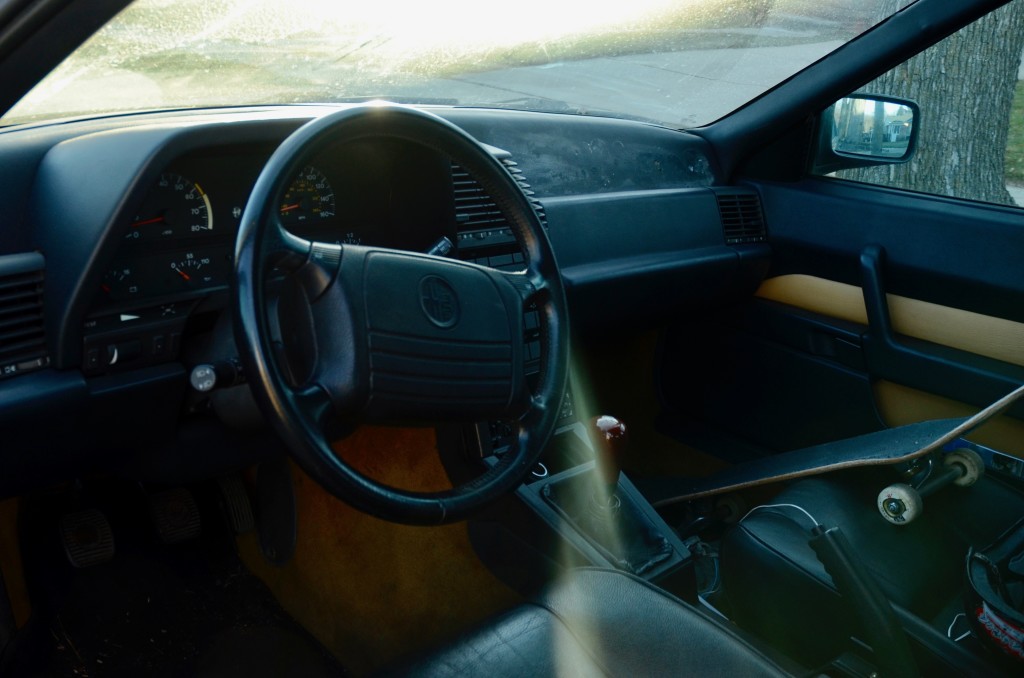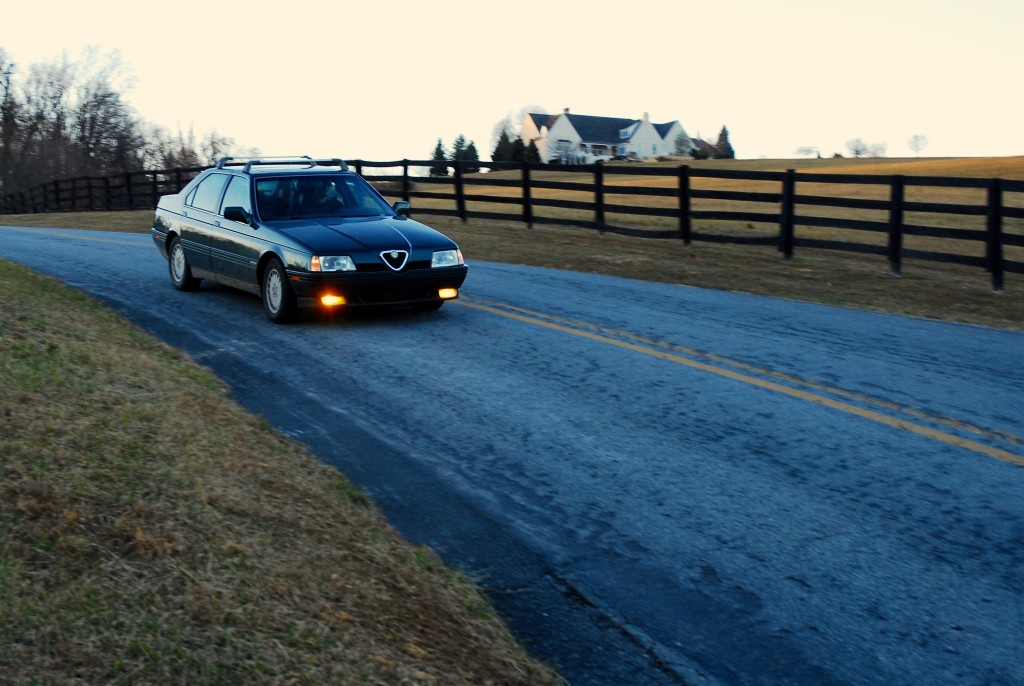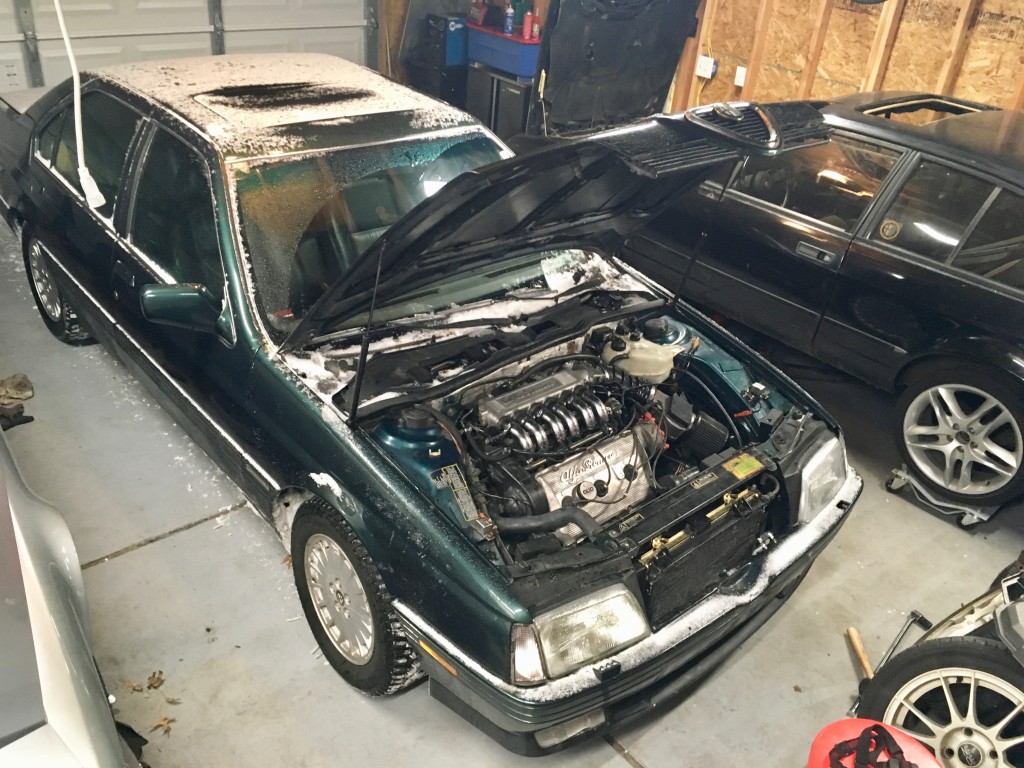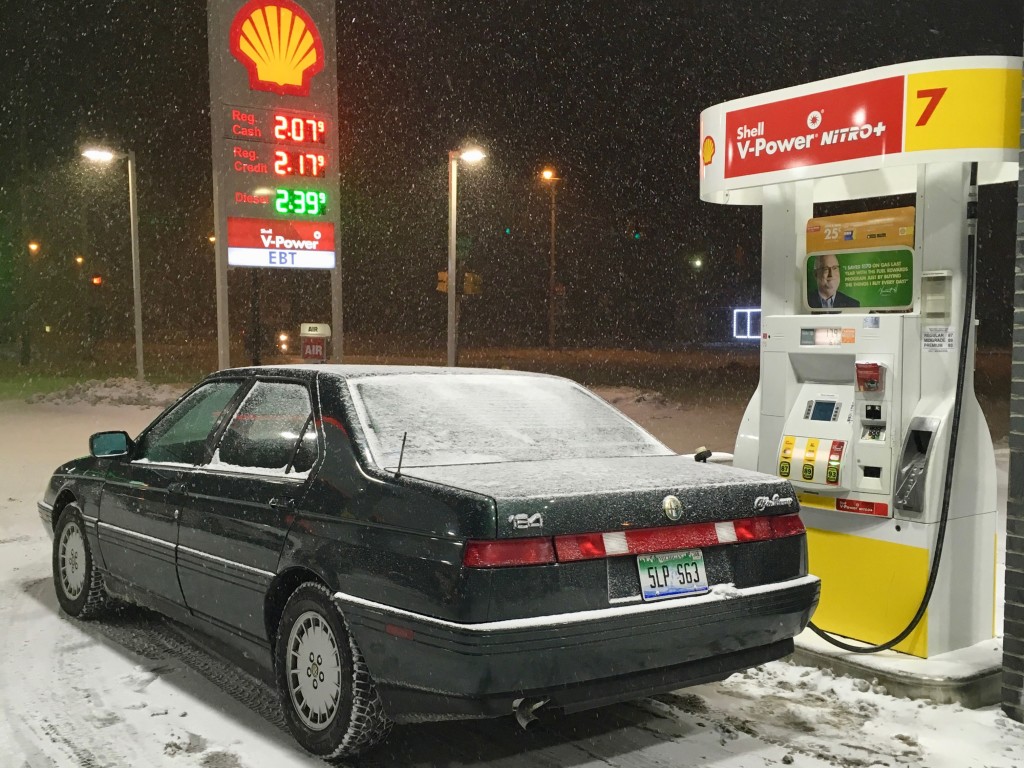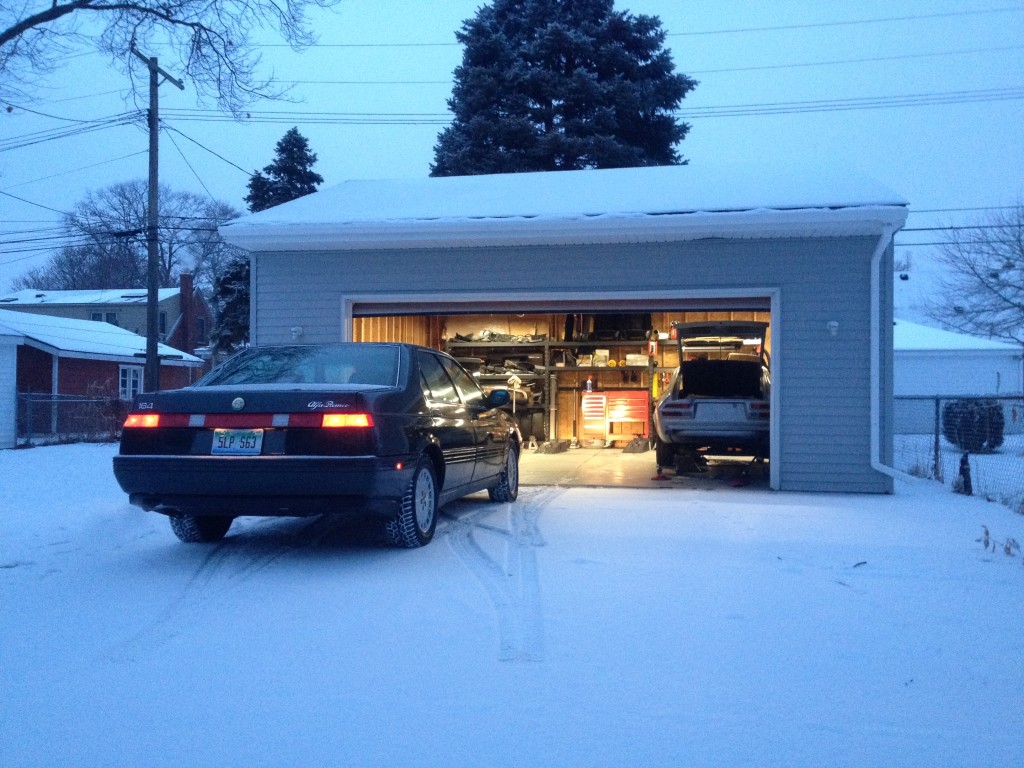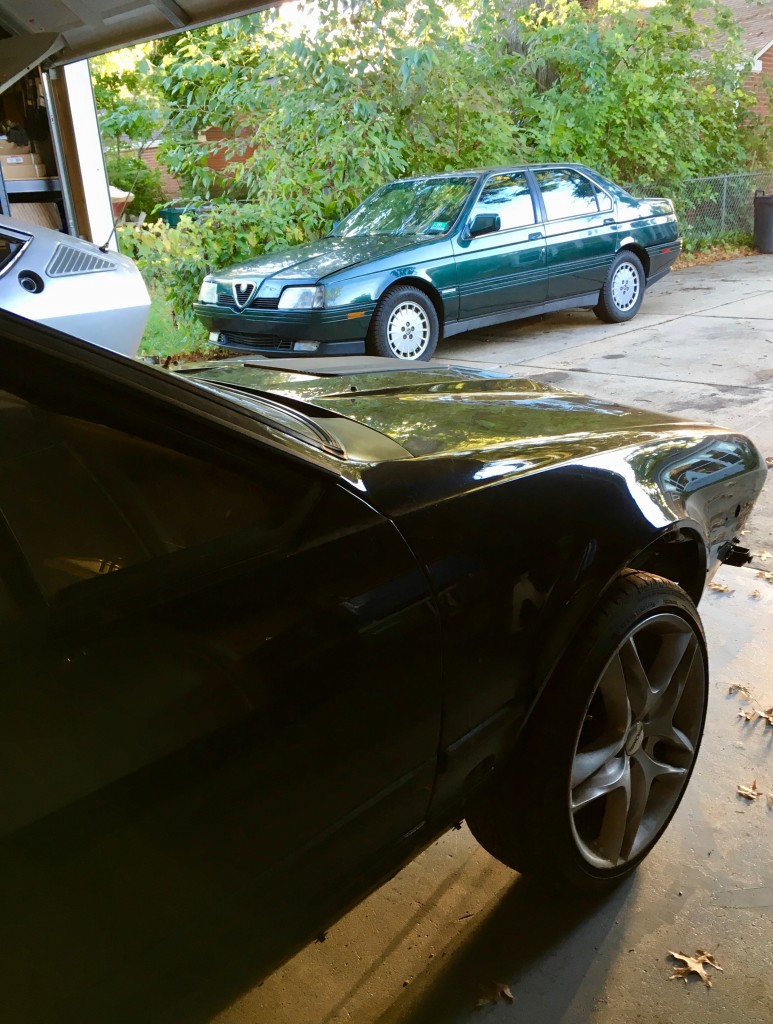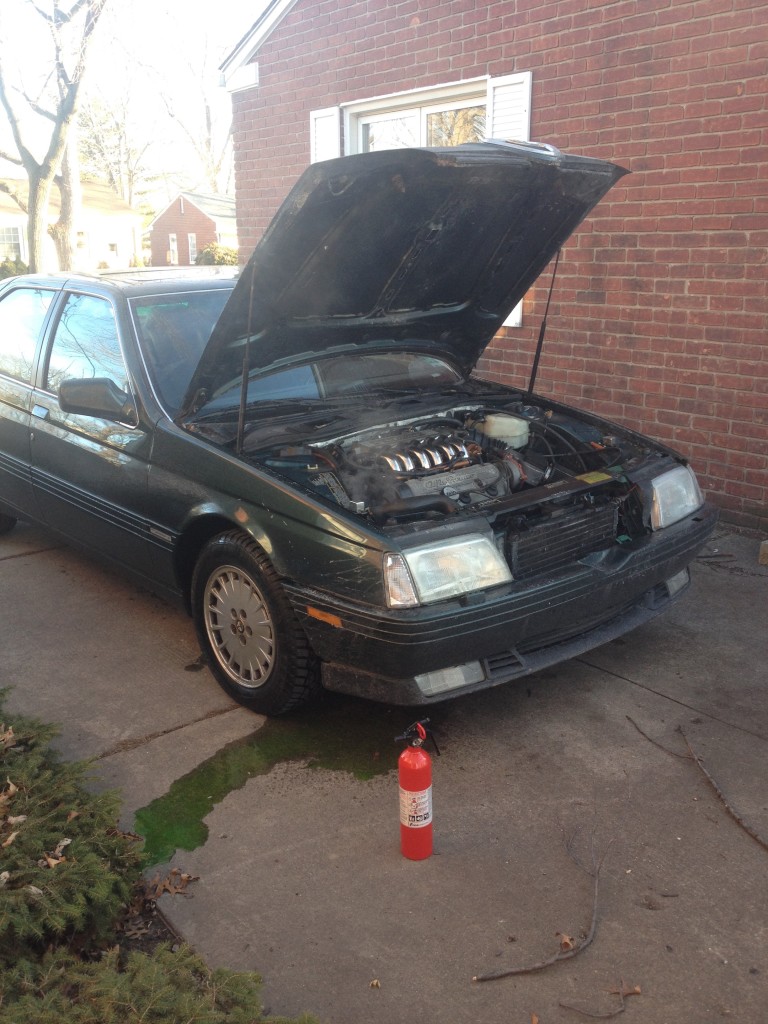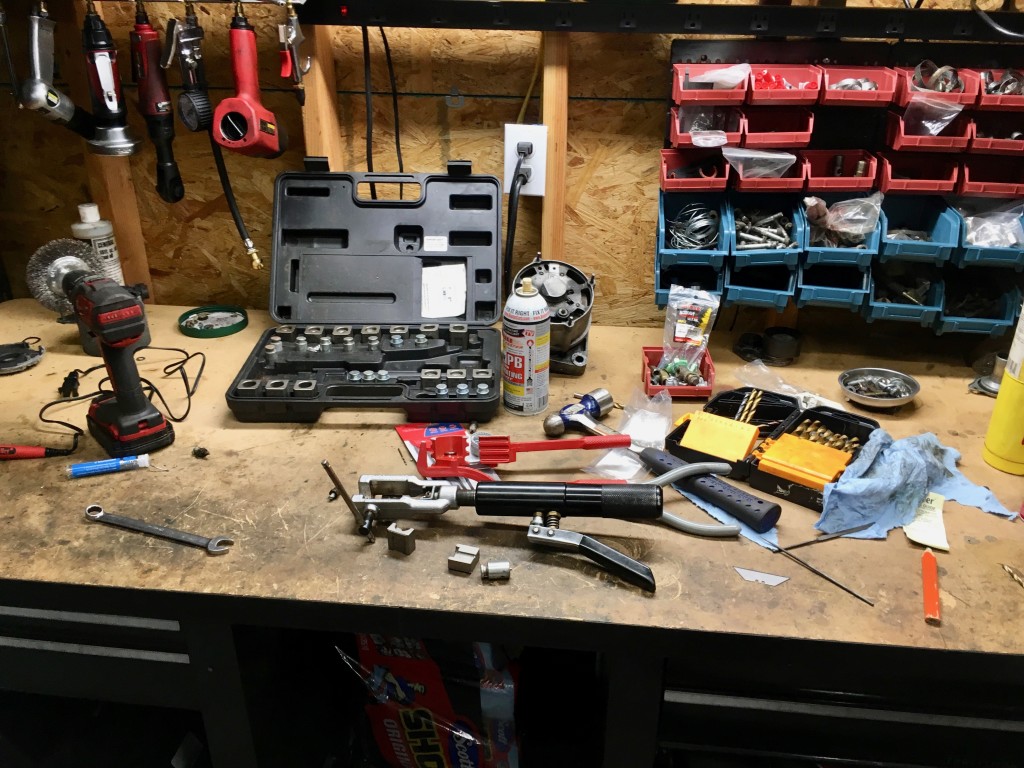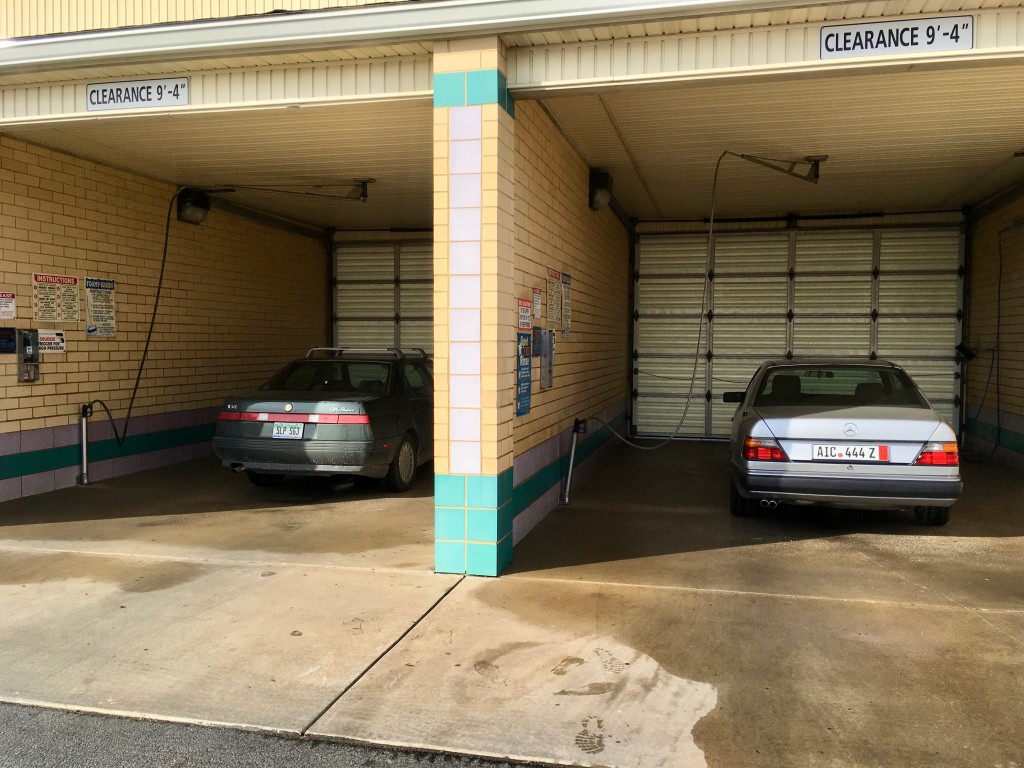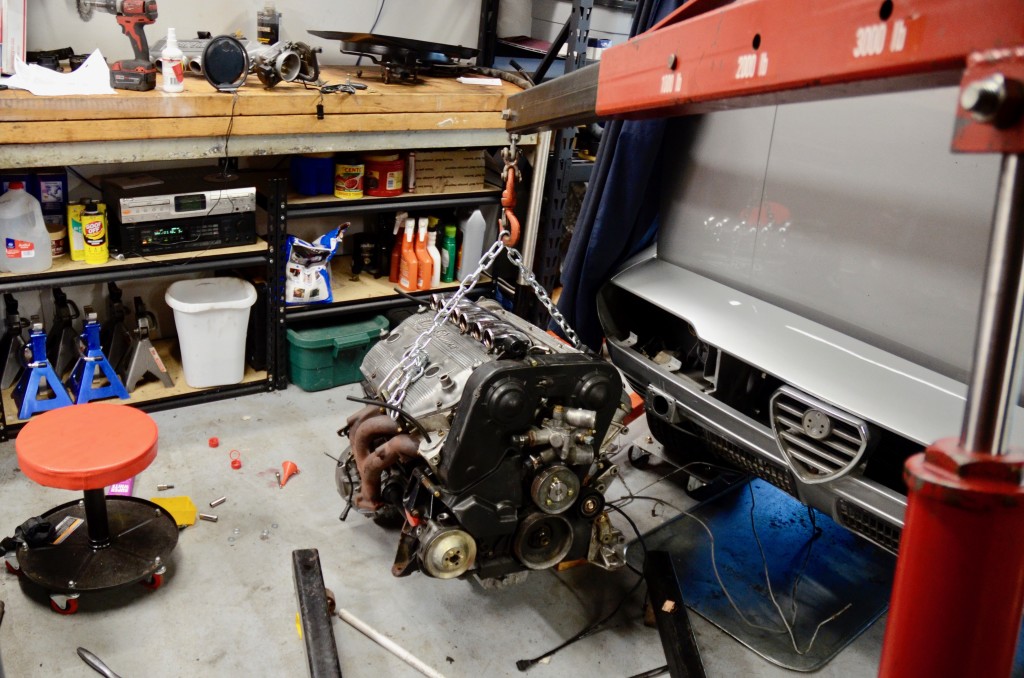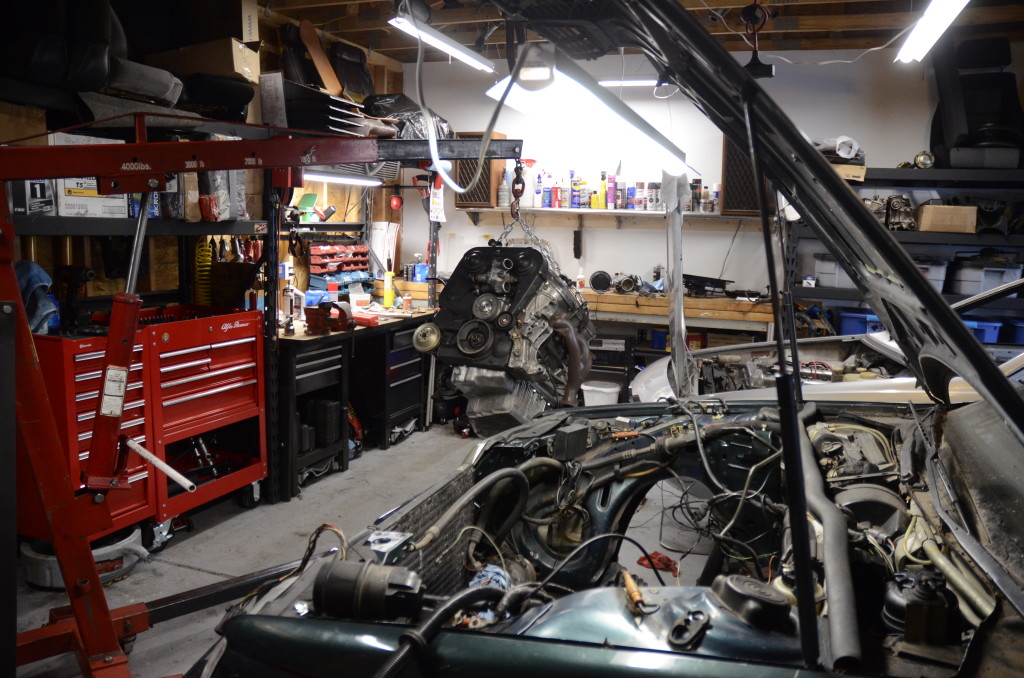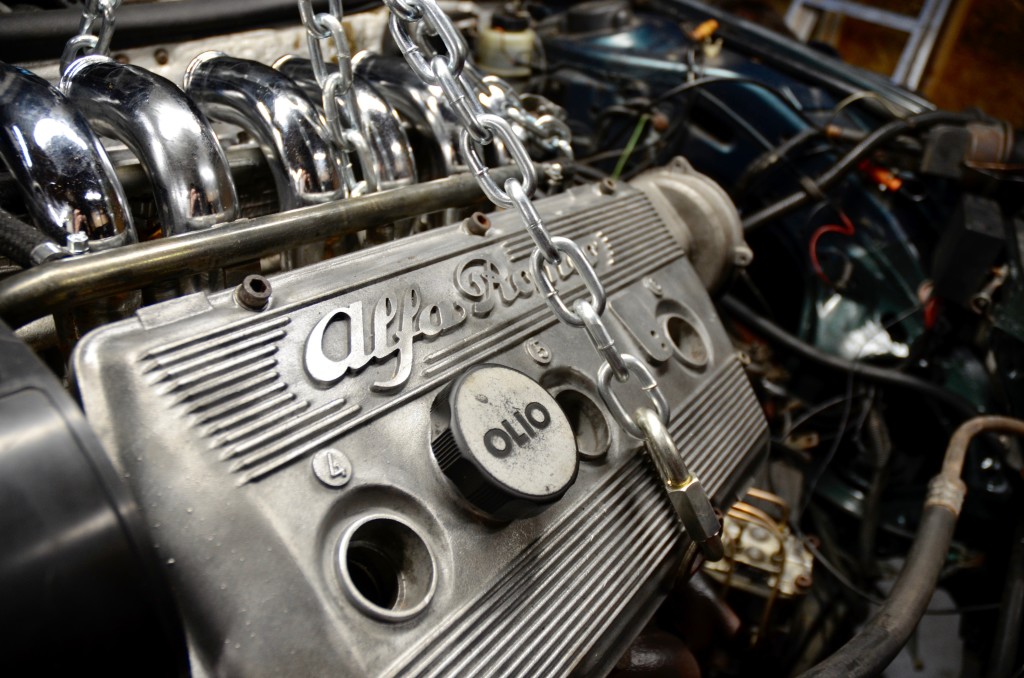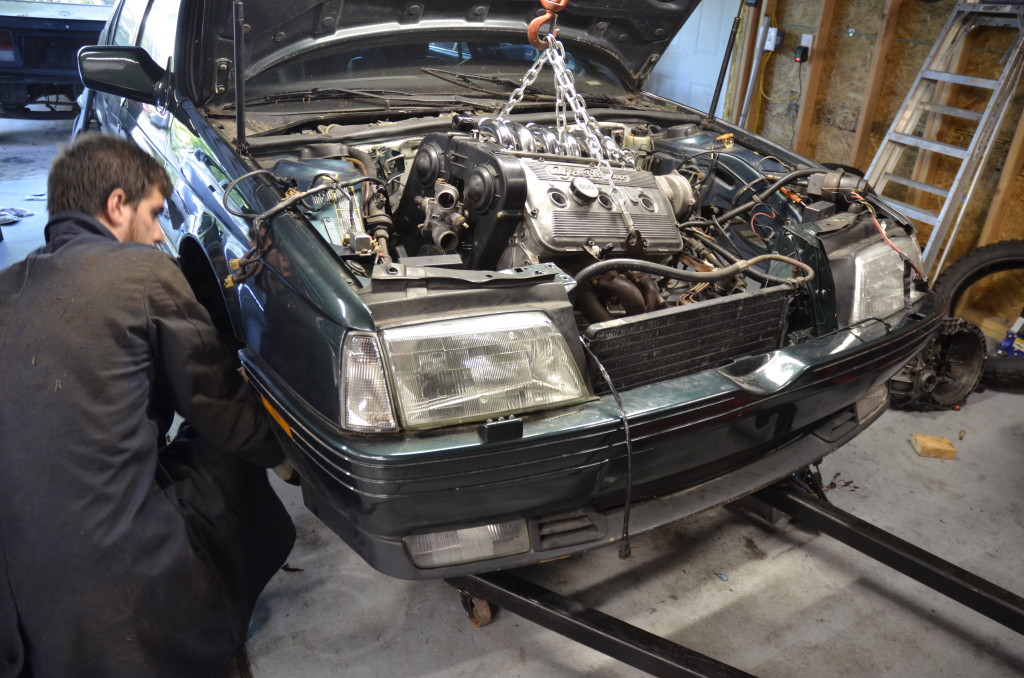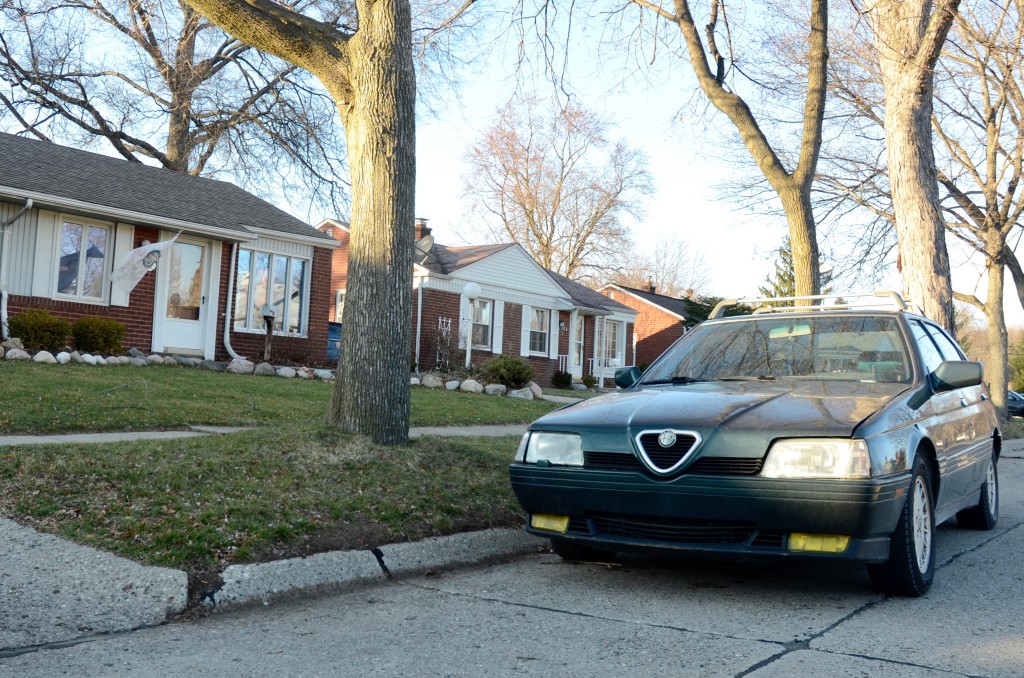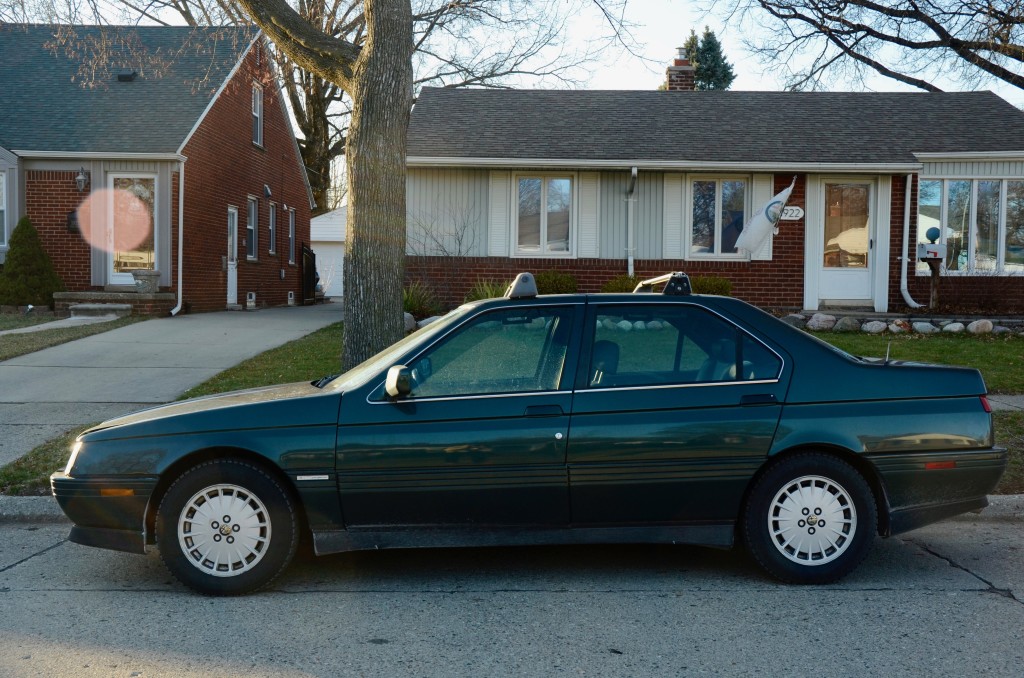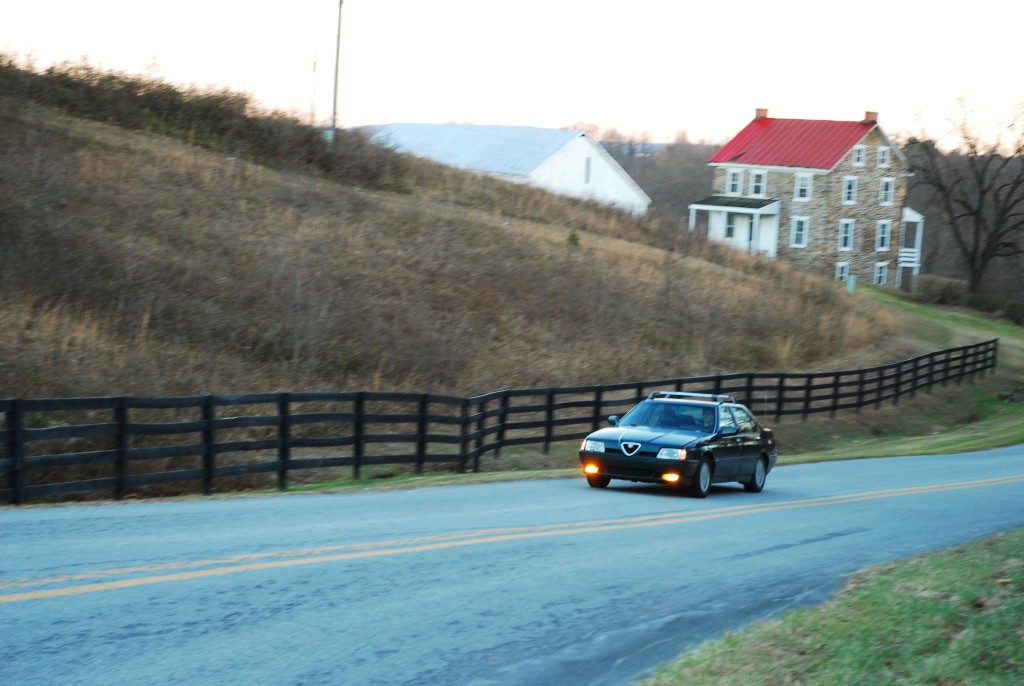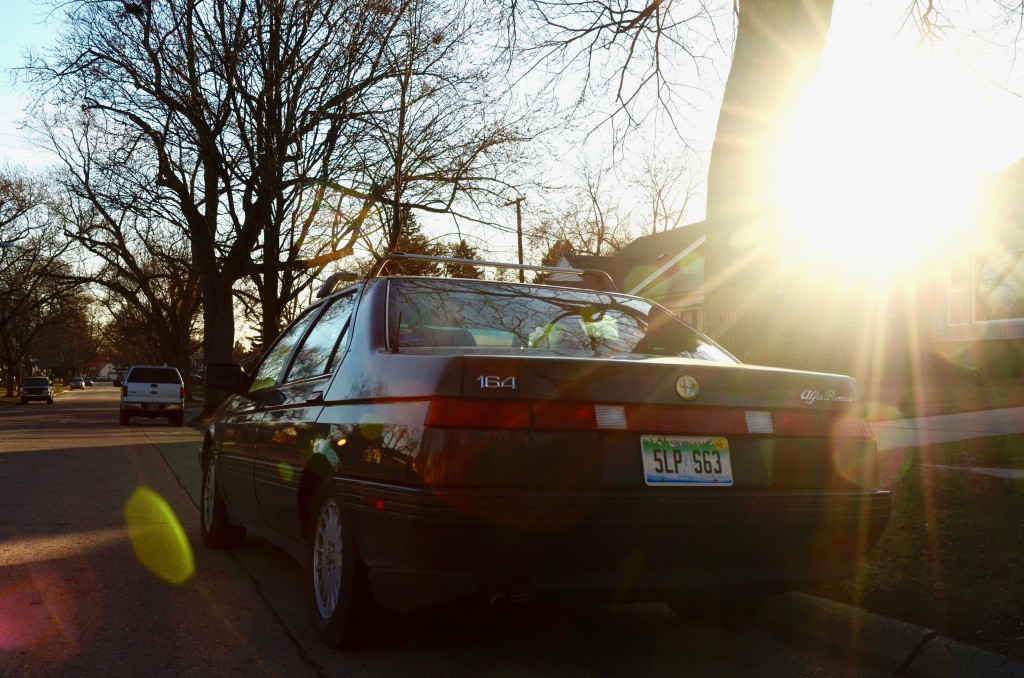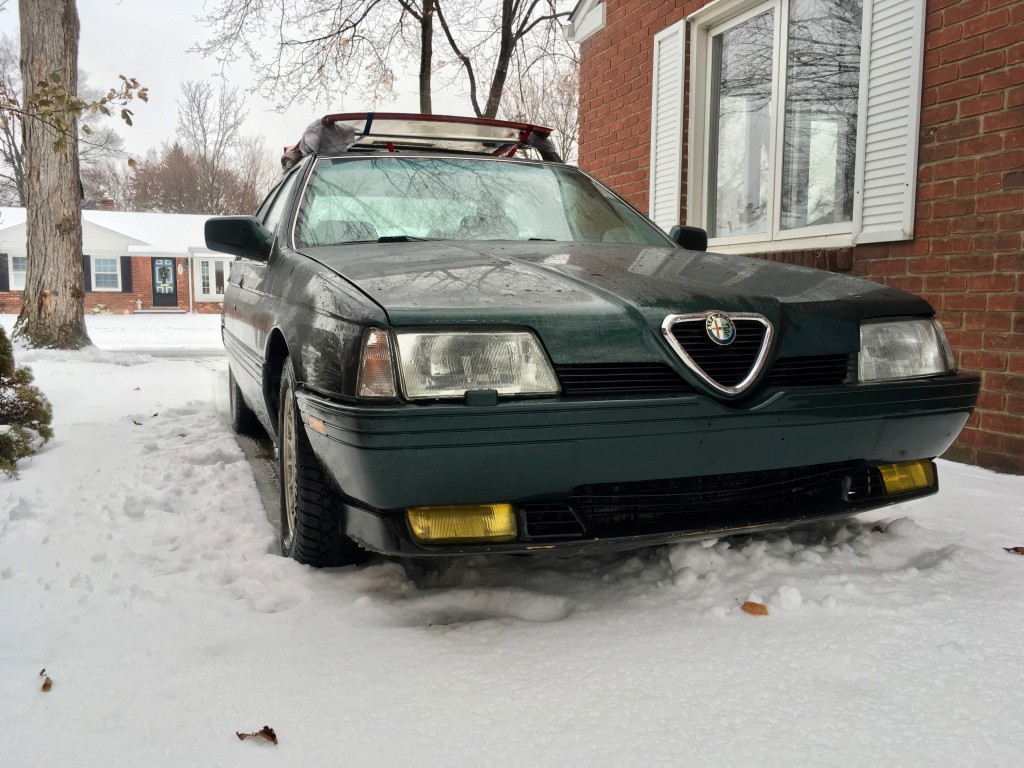 Maintaining a mental inventory of the local Alfa classifieds bears a certain risk. That risk came to light last winter, when a last-minute cancellation left me in Pennsylvania without a ride or flight back to Michigan. A simple problem, unless left to my internal problem-solving model. All models are wrong; some are useful. And, when I’m left in charge of calibrating the models, they point invariably to Alfa Romeo as the answer. Cognitive bias, to put it lightly. I was going to find a cheap Alfa to get me home.
Maintaining a mental inventory of the local Alfa classifieds bears a certain risk. That risk came to light last winter, when a last-minute cancellation left me in Pennsylvania without a ride or flight back to Michigan. A simple problem, unless left to my internal problem-solving model. All models are wrong; some are useful. And, when I’m left in charge of calibrating the models, they point invariably to Alfa Romeo as the answer. Cognitive bias, to put it lightly. I was going to find a cheap Alfa to get me home.
Now, I have a history of rationalizing Alfa purchases. As my first Milano Verde sat engineless in my apartment garage, I convinced myself to bring home an Alfa 164LS daily driver. That 164 made it two weeks. A year later, that same Milano Verde burned down my garage, 3 other emerging European classics, and the majority of my backyard; I was back in a Verde within 45 days. Then there was the ran when parked Alfetta GTV shipped to my garage from California. And then the ran when parked GTV-6 we towed home from Indiana. Necessary, all of them.
I settled on a green 164 in New Jersey. One assuring phone call, a few trips to the ATM, and a ride across New Jersey with my brother later, I was plopping down $1,200 on someone else’s unfinished project. In the dark. For practical reasons, of course. Who was I to book a flight just a week in advance? Or, heaven forbid, to hire a one-way rental car?
The car made it back to Michigan, no problem, if you don’t count the New Jersey Motor Vehicle Commission computer system crashing at the exact moment that I was trying to pay for a temporary plate. But, its arrival to Michigan bore a major question – what to do once the car has served its intended purpose? Sell it? Let a bulletproof 164 out of my hands? Hell no. I set my sights on retaining it for Italian winter car duty.
The 164 platform isn’t the most unlikely to see winter car use. For one, it’s effectively galvanized, unlike prior Alfas, so road salt isn’t an issue. And, the much-maligned FWD layout isn’t so rotten with a set of slim snow tires all around, as I found out. I’ve never driven an Italian car that struggled to produce heat, and the 164 is no exception.
Unfortunately, it was still a 25 year car from New Jersey. The brakes were first to go. I smelled smoke as soon as I pulled the car onto a surface street in the Cass Corridor of Detroit. Pressing on, the brake pedal went to the floor and the car continued to travel. A brake line had burst, showering the exhaust in brake fluid. In order to replace the brake line, I had to drop the (full) fuel tank onto the garage floor. Also dropped on the garage floor: ten gallons of gasoline. History did not repeat itself, thankfully. While I was replacing the brake line, I also took the time to replace all of the pads, rotors, calipers, brake hoses, and front suspension bushings. It wasn’t so much necessary as much as it was a good time to dig in. The car was already out of service, and I didn’t want any excuses when it came to stopping or changing direction.
No more than two weeks later, I overheated the car on the way home from work. I tried my luck with a replacement of all of the coolant hoses to no avail; black droplets of oil floated to the top of the coolant tank on my next drive. Bad head gaskets. The car had made it to work and back no more than 10 days and I was in deeper than I had hoped. I parked the 164 next to my garage and spent spring and summer enjoying my Milano.
I set out to remedy the 164 in late August. Beer in hand, I pulled everything from the engine except for the engine mounts themselves. By the next day, the engine was sitting on the ground next to the car. On the engine I replaced the head gaskets, every inch of fuel hose, the water pump, timing belt and tensioner, all three v-belts, cam seals, engine mounts, and front and rear main seals. I set the valve lash, had the flywheel machined, cleaned up the valve covers, and polished the chrome intake runners. On the transmission side, I replaced the whiney transmission with a known-good used unit with fresh output shaft seals, replaced the clutch and throw-out bearing, replaced all of the shifter bushings, and replaced the trans to chassis mount. I threw in a new radiator, rebuilt the cooling fan, and repainted the fan shroud. Replaced every brake line with hand-formed. And, before reassembly, I installed a rebuilt steering rack with fresh hoses, and treated and painted any areas with surface rust. Preventative maintenance.
By October, the car should have been running. I had everything back together, but could not get the car to settle into an idle. After printing out and running through every possible Alfa 164 fuel system troubleshooting guide, I noticed that the power wire to the ECU relay was corroded beyond the point of functioning. Ah. After chasing my tail for a month I got it to idle. Progress.
So by December, I was finally driving my Alfa Romeo to work. I would have made it straight through the winter too, but the crank position sensor wire cracked on my way home from work, forcing me to limp along the Southfield Freeway and sit the 164 out for a week while I diagnosed the issue. I stockpile Alfa parts for situations such as this, and fortunately I did have a few spare crank position sensors and leads sitting on the shelf. I try to buy parts as soon as people get fed up with storing them in their garages, and before I ever need them. Prices work in my favor that way, as parts do inevitably wear out or break.
January and February were uneventful, and with some appreciable time behind the wheel, I learned the following. It’s important to de-ice the windshield before hopping in the car, since the defroster only heats the passenger side of the windshield. Don’t bother with the radio dial – you’ll be listening to classical radio. Warm the car up for 3-5 minutes at idle every morning, wind out the gears a little with light load to get heat into the engine, and clear out the carbon once the oil is warm. The longer you hold the gear, the louder the mechanical symphony, and for those with a bit too much skin in the Alfa game, you can get the car to cackle as you tip the throttle in and out slightly. Sell your Alfa if you lose interest in the sound. The springs are weak so cornering is best achieved be easing slowly off of the gas; any braking sends the front end into a cumbersome dive. Use the entire road to make corners more bearable. Avoiding potholes is unnecessary, especially on the squishy snow tires. Fuel mileage is regrettable. Don’t overfill the fuel tank.
So, instead of buying the plane ticket, I invested in an Alfa Romeo 164. And three times that into parts. Add 100+ hours of labor to that figure as well. Where does that leave me? I won’t even begin to rationalize that. On the positive side, I got to drive a handsome Pininfarina sedan to work every day so far this year, guiding the Busso V6 through 5 gears by the mahogany shift knob. Never did I have to push on a plastic button to slide the shifter into drive. Never did I have to listen to talk radio to stay entertained. And never did I spend a second wishing that I were driving my Alfa. My coworkers hear my daily complaints about the car, and I appreciate their patient advice on the various clicks, taps, and shudders I report on every morning. There is nothing charming about a broken Alfa Romeo, yet little more rewarding than keeping one on the road, and the relief of arrival.

